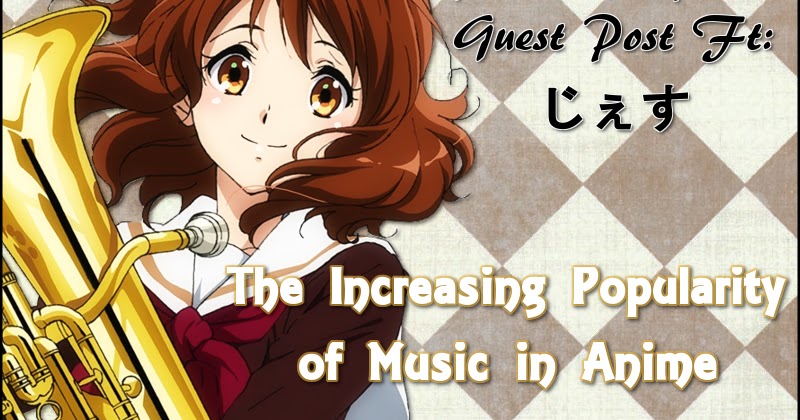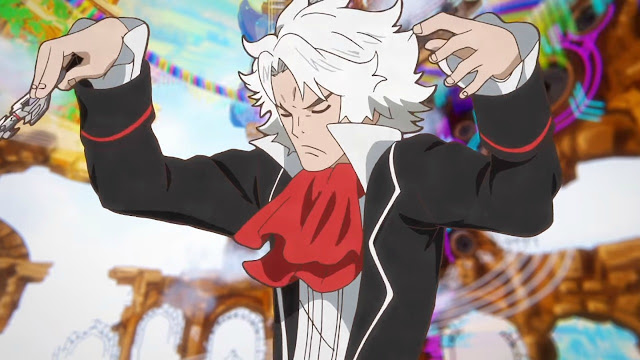“Hi! My name is Jessica,
but I go by ???
on here, which means Jess! This is my first time
posting on Shooting Star Dreamer, so I thought I should give a bit of
an introduction. I’ve loved anime since I was small, my first anime
being Samurai Pizza Cats when
I was only two years old. Currently I enjoy Japanese media of many
sorts, including anime, manga, video games, light novels, and more! I
hope you’ll enjoy my first post!”
Music has been an
existing topic in anime for decades, as can be seen in titles such as
Macross (1982), Full Moon wo Sagashite (2002), and Beck (2004). Back
in the early 2000’s, there were only handfuls of music-based anime
available, so fans of that genre didn’t have much room to be picky.
In the 1980’s and 1990’s, there were even less. As time passed, the
later 2000’s brought us anime such as Nodame Cantabile, K-On!,
Detroit Metal City, and in the early 2010’s we got a bunch more
music-related anime.
Now, in the year 2017,
eight music-based anime TV series have begun airing already, five
have been announced to air sometime during 2017, and thirteen have
been announced with no release date yet. That’s a total of twenty-six
music-based anime, potentially airing in 2017 alone. So what’s
causing this huge jump in music anime?
First off, we have to
realize that anime and Japanese animation studios are growing in
number every year. The first reason why there’s so much more music
anime, is because anime itself exists in larger numbers. According to
Anime-Planet’s
database, the Summer 2004 anime season only had seventeen
different series released on air. The Fall
2016 anime season had a total of 84 anime TV series on air.
Because of the huge increase in numbers of TV anime in general, it
makes sense that there should be more music anime, right?
That is correct to a
certain degree. However, there still seems to be a trend of
music-based anime coming out at this time in comparison to other
“niche” genres. By “niche”, I’m referring to more specific
categories of anime, such as “lost in a strange world” or
“vampire” instead of more common genres such as “action” or
“horror”.
In Japan, pop idols are
very successful right now; especially AKB48 which is situated in
Akihabara. Akiba for short, it’s somewhat of a hub for otaku of all
varieties, and so there has come to be an entire culture surrounding
what’s known as “idol otaku”. In addition to AKB48’s success in
Akiba, screens across the district and other anime-heavy locations in
Japan have been playing many Love Live videos. Love Live is currently
very popular among Japanese otaku.
While I do think that
Japanese idol groups such as AKB48 and popular anime about idols such
as Love Live have contributed to the increased number of music anime,
I know many of you are shaking your heads right now, thinking, “Not
all music anime is about pop!” That’s true, recent anime such as
Sound! Euphonium and Classicaloid are not about pop. However, if you
look at the different titles of recent music-based anime, you’ll
notice that almost all of them are indeed about pop.
It makes sense; after
all, you have to start somewhere while learning music, and often
pianists will start with learning classical music. That, and if you
look at the variety of anime we have coming out each season, you can
see that creators are going for more and more niche subjects. The
upcoming Welcome to the Ballroom anime is about ballroom dancing, for
an example. It makes sense that the music genre would want to spread
out to different types of music as well.
Overall, I feel that the
increasing popularity of Japanese pop idols is responsible for our
growing collection of music anime, but the anime industry itself is
also to thank for that, having progressed so much, growing each
season, and increasing its own variety.

